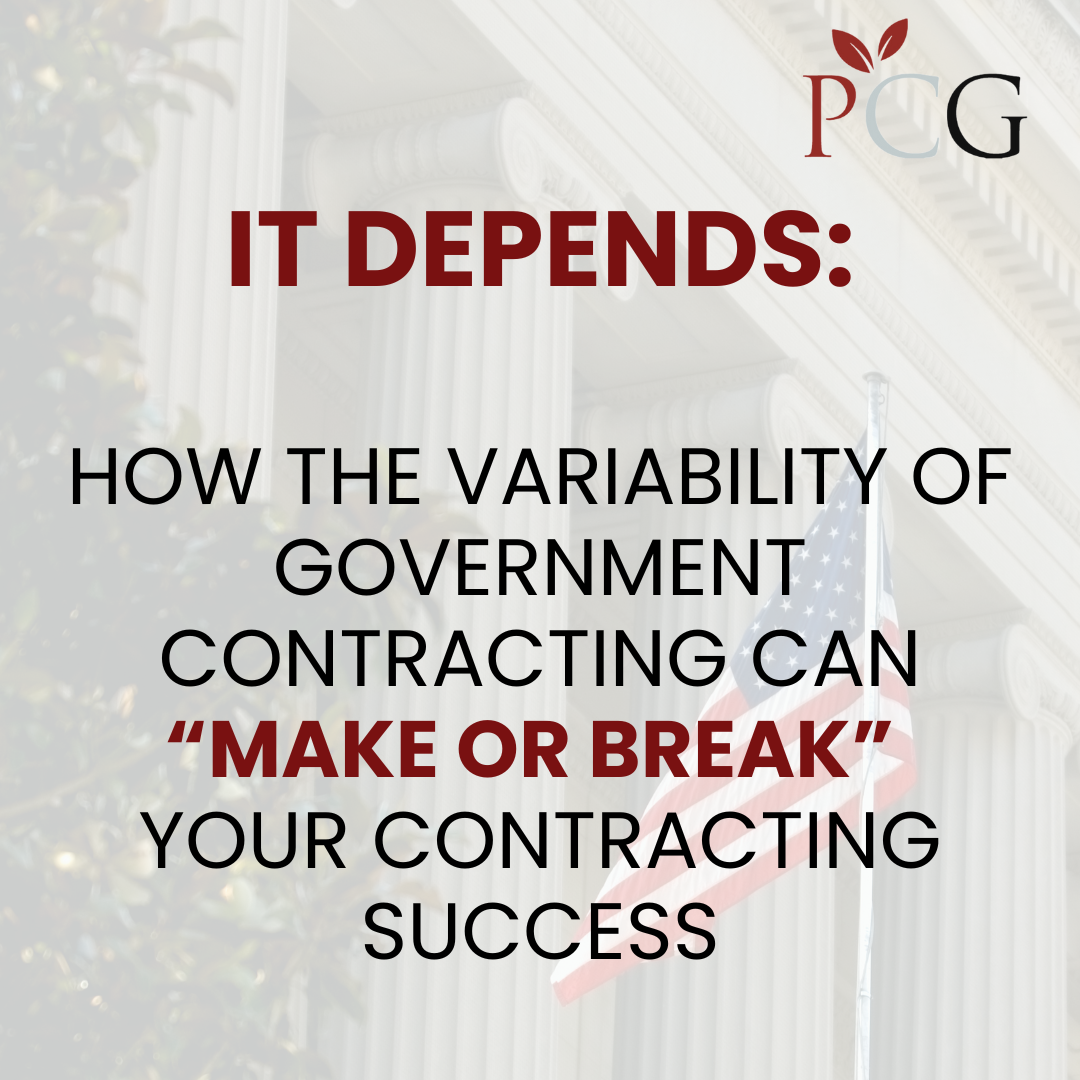When it comes to contracting with the government, one size does not fit all. Even if you are a seasoned contractor, you will find that a new rule, situation, unspoken agency preference, etc. can change up the game that you thought you knew. This variability often leaves small businesses wondering how to navigate this complex landscape effectively. Here’s why the nuances matter and why a distinct strategy and process may be necessary for each agency you target.
1. Agency-Specific Regulations
Different federal, state, and local agencies have unique contracting rules and procedures. For example, the Department of Defense (DoD) might have different procurement standards compared to the General Services Administration (GSA) or the State of California. These variations can affect everything from proposal submissions to compliance requirements and contract execution. Knowing the specific rules of each agency is crucial for success.
2. Business Infrastructure & Capabilities
Your business size, industry, and capabilities play a significant role in how you approach government contracting. Small businesses, particularly those in specialized fields, may encounter distinct opportunities and challenges. For instance, a tech startup will navigate the contracting process differently compared to a construction firm. Tailoring your approach to your business’s unique characteristics AND those that are important to your target agency(s) are essential for securing contracts and delivering on them effectively.
3. Contract Type and Scope
Government contracts come in various forms, such as fixed-price, cost-reimbursement, time-and-materials, and indefinite-delivery/indefinite-quantity (IDIQ) contracts. Each type has different requirements, risk levels, and management demands.
For example, a fixed-price contract requires a small business to deliver the agreed-upon goods or services for a set price, placing the risk of cost overruns on the contractor. In contrast, a cost-reimbursement contract allows for payment of allowable incurred costs, providing more flexibility but also requiring meticulous documentation and cost accounting practices.
Additionally, the scope of the contract—whether it’s a small, one-time project or a large, multi-year program—can significantly impact how a small business approaches the opportunity. Smaller projects might have simpler requirements and shorter timelines, while larger, more complex projects often require robust project management plans, detailed reporting, and potentially, partnerships or subcontracting arrangements.
These are but a few examples of agency specific rules, contract types, or business capabilities that often lead to an answer of “it depends.” Having a knowledgeable support staff or a government contracting consultant in your corner can help you cut through the red tape and avoid costly missteps.

